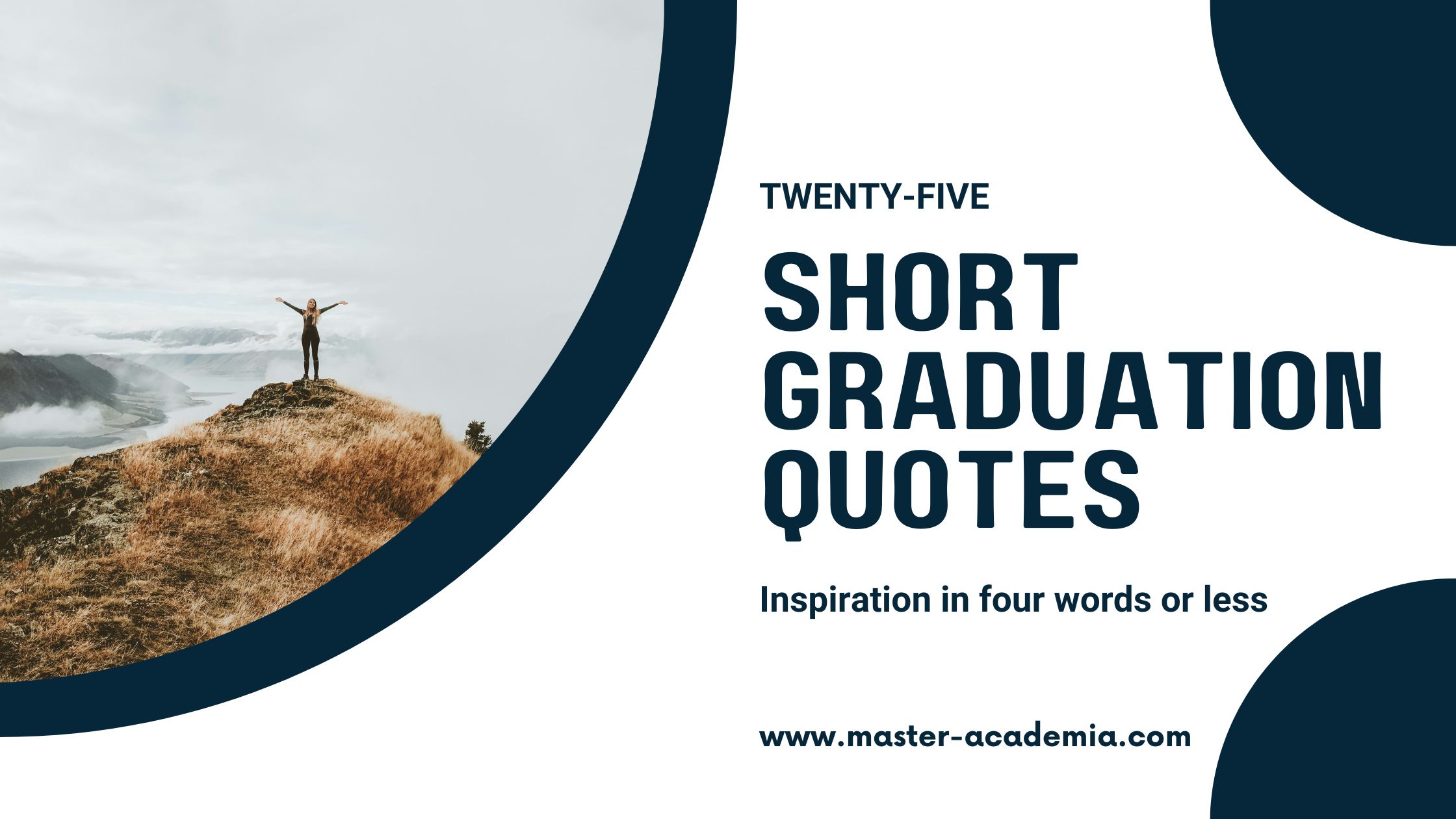
The question “What are your plans for the future?” can be nerve-wracking and anxiety-inducing, but nonetheless, it is one of the most common ones asked, particularly to students at all levels. The following strategies and eight sample answers help you navigate this question skillfully and determine how much you want to reveal, regardless of whether you actually have a plan or not (yet).
Contents
- The ‘problem’ with the question ‘What are your plans for the future’?
- The value of having a pre-crafted answer to ‘What are your plans for the future’?
- Sample answers to ‘What are your plans for the future?’ if you have concrete plans
- Sample answers to ‘What are your plans for the future?’ if you have vague plans
- Sample answers to ‘What are your plans for the future?’ if you no plans (yet)
The ‘problem’ with the question ‘What are your plans for the future’?
As a young person, especially when you’re approaching the end of your studies, you’ve probably encountered one of the most annoying questions: “What are your plans for the future?” This inquiry often surfaces, whether you’re pursuing a bachelor’s, master’s, or doctoral degree.
It’s perfectly fine not to have all the answers. After all, plans are good, but nobody truly knows what the future holds.
Creating future plans can be a challenging and burdensome task. Just remember that it’s absolutely acceptable not to have everything mapped out.
Instead of engaging in lengthy discussions with persistent relatives, nagging parents, or professors who insist on hearing your professional career ambitions at the start of a class, understand that not everyone will grasp your perspective. However, with the right kind of responses, you can address their inquiries effectively.
It’s crucial to recognize that you don’t owe anyone a response to this question. Your journey and decision-making process are entirely yours to navigate.
Fortunately, there are ways to provide satisfying answers that satisfy the questioner, regardless of the specificity of your plans or how much you wish to disclose.
The value of having a pre-crafted answer to ‘What are your plans for the future’?
To clarify your thoughts, it can be helpful to contemplate possible responses to this question.
Having a pre-prepared answer script can significantly ease the emotional and social challenges associated with this question in various social settings.
More importantly, if you find yourself without any specific plans, you may want to avoid getting drawn into lengthy conversations about it unless you’re willing to engage.
While it’s essential to have the confidence to disregard others’ opinions and not allow them to make you anxious, it’s equally empowering to possess the skills needed to steer the conversation in your desired direction and resist pressure to divulge more information than you’re comfortable with.
You may also like: The best answers to “Where do you see yourself in 5 years?”
Sample answers to ‘What are your plans for the future?’ if you have concrete plans
Share as much as you like
The most straightforward way to respond to the question “What are your plans for the future?” is when you already have well-defined plans and are enthusiastic about sharing them with anyone who inquires. In such cases, there aren’t many specific recommendations required because you can simply go ahead and share your plans. Congratulations on your clarity! It’s likely that you won’t need a sample answer for this situation. However, just in case, here’s one:
| I want to become a medical doctor, and I’m thrilled to share that I’ve been accepted into the pre-med program at the University of Pennsylvania. My move is scheduled in just 9 weeks, and I couldn’t be more excited to kickstart this new chapter. |
Evade a lengthy conversation
Even when you have well-defined plans, it can still be bothersome to repeatedly respond to this question. There might be times when you’re simply not in the mood to divulge all the details of your plans. In such situations, it’s a useful skill to redirect the conversation. Typically, sharing a concise portion that satisfies the curiosity of the person who asks is sufficient, followed by a deliberate shift in the topic. Here’s an example of how to do this effectively:
| I’ll be graduating in just one semester, and my plan is to apply for consultancy traineeships, with a focus on the tech sector. By the way, how was your holiday? I heard you went to Hawaii. |
Sample answers to ‘What are your plans for the future?’ if you have vague plans
Many individuals are keen on inquiring about your future plans, often because they tend to envision a rigid professional trajectory where one remains committed to a single career throughout their life. Interestingly, vague plans can often suffice to satisfy the curiosity of the questioner, especially when presented thoughtfully or when shared with complete honesty.
Share your ambitions instead of concrete plans
An effective approach to respond to the question “What are your plans for the future?” is to focus your answer on your overarching life goals and aspirations, rather than delving into the intricate details of what you specifically intend to do in the near or distant future. Here’s an example response that demonstrates this approach:
| In the long run, my goal is to work in the field of environmental protection, leveraging the knowledge and skills I’ve acquired through my studies. Equally important to me is finding a work environment that is both supportive and flexible, enabling me to pursue my professional objectives while also having time for my hobbies. I have a deep passion for hiking and cycling. Ideally, I envision settling down somewhere in the Midwest as the perfect scenario. |
Provide several alternatives
Rather than presenting a single definitive plan for the future, you can discuss various possibilities or alternatives that you’re currently contemplating or that align with your background. This approach redirects the conversation away from a singular, fixed plan, highlighting your thoughtful consideration and the range of potential outcomes.
| My master’s degree in social work opens up opportunities in a wide array of professional domains, spanning from governmental roles to community-based work. Additionally, one of my professors has raised the potential of transforming my master’s thesis topic into a PhD project, pending the availability of funding. This prospect is certainly intriguing. However, it’s important to note that as of now, no definitive decisions have been made. |
Be confident and honest
A different approach than keeping it brief and trying to change the subject is to be honest and vulnerable. You will have to be in the mood for it and the self-confidence that this is not a problem (because it is not!), but you will be surprised at how many people will understand your situation and actually share how they struggled in this time of their lives.
| To be honest, I’m not certain yet. I’m leaning towards working in the non-profit sector or with a company that has a distinct social mission. My goal is to make a meaningful contribution to society. However, there are so many possibilities, and I’m still figuring it out. It can be quite overwhelming to make these types of decisions! How did you figure out what you wanted to do? |
Sample answers to ‘What are your plans for the future?’ if you no plans (yet)
It’s worth emphasizing again that not having everything figured out is completely normal. Even if you do have a plan, it’s highly likely that it will evolve over time. So, there’s no need to worry. Everyone progresses at their own pace when it comes to defining their future plans. Some people may require more time to discover their path, while others lead fulfilling and successful lives without ever formalizing concrete plans. Being adept at handling this question can empower you to deflect any negative feelings others might try to impose on you regarding your situation.
Explain that you take it one step at a time
Highlighting your current endeavors and emphasizing your present focus can be an effective way to respond to the question. It demonstrates your dedication to excelling in your current pursuits while acknowledging that the future will naturally unfold.
| I’ve recently started my thesis writing journey, and while it’s exciting, it’s also quite time-consuming and demanding in terms of energy. I’m approaching it step by step, with my current priority being to dedicate my best efforts to this process and absorb as much knowledge as possible along the way. |
Explain that you don’t believe in grand plans
| Personally, I don’t believe in having grand, rigid plans for the future. My approach is to remain open-minded, curious, and receptive to exploring various possibilities. Often, opportunities arise when least expected. I believe that one thing tends to naturally lead to another, and I have confidence in finding my path in life without the need for a meticulously crafted master plan. |
Pretend you have plans but cannot share them yet
Yes, claiming that you have plans but can’t disclose them yet is a harmless fib, and it’s perfectly acceptable to use in order to gracefully navigate uncomfortable situations. Here’s an example of what you could say:
| I’m currently evaluating several options, but I’d rather not talk about them until they are finalized. So you need to be a bit patient. I will let you know once it is official. |



